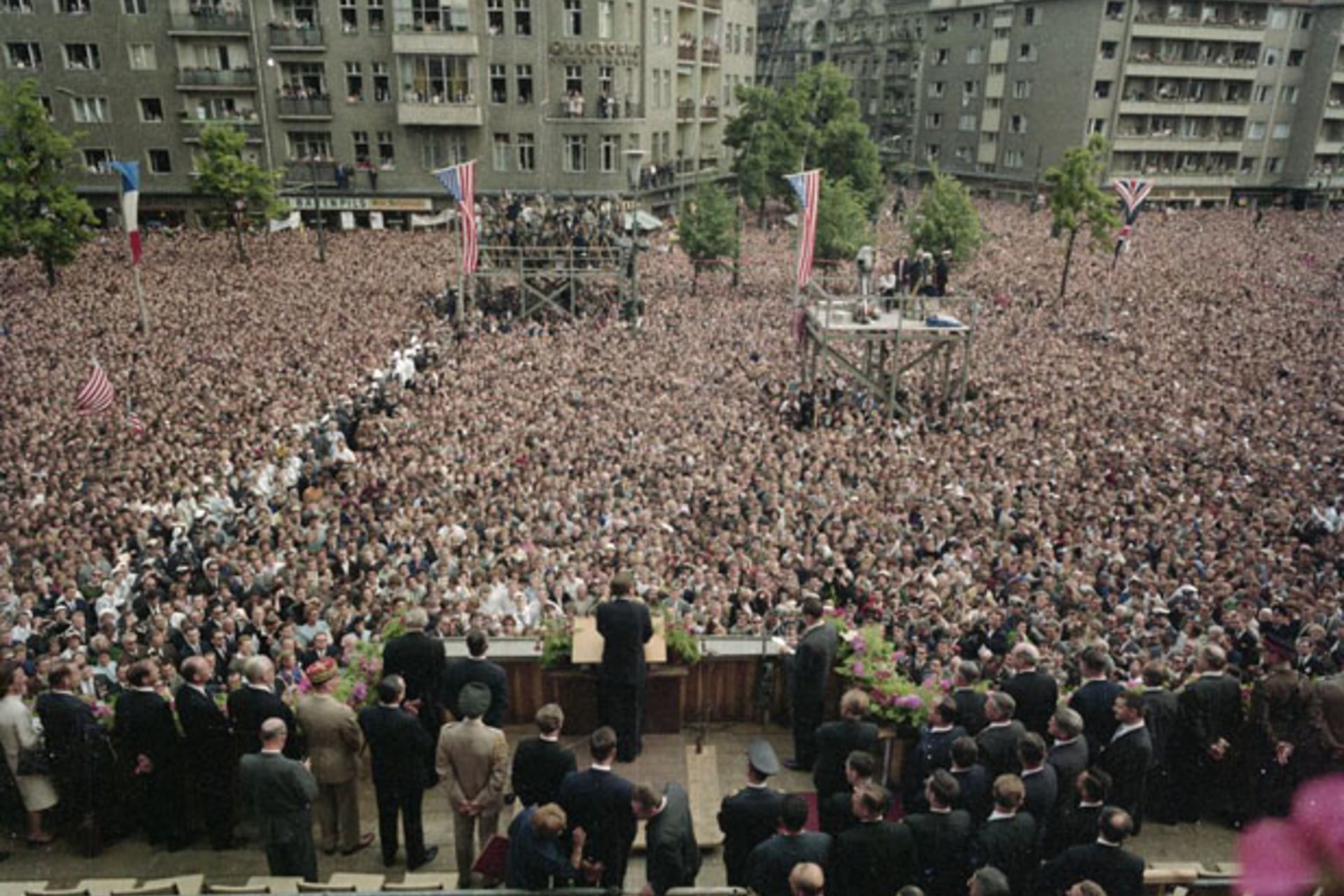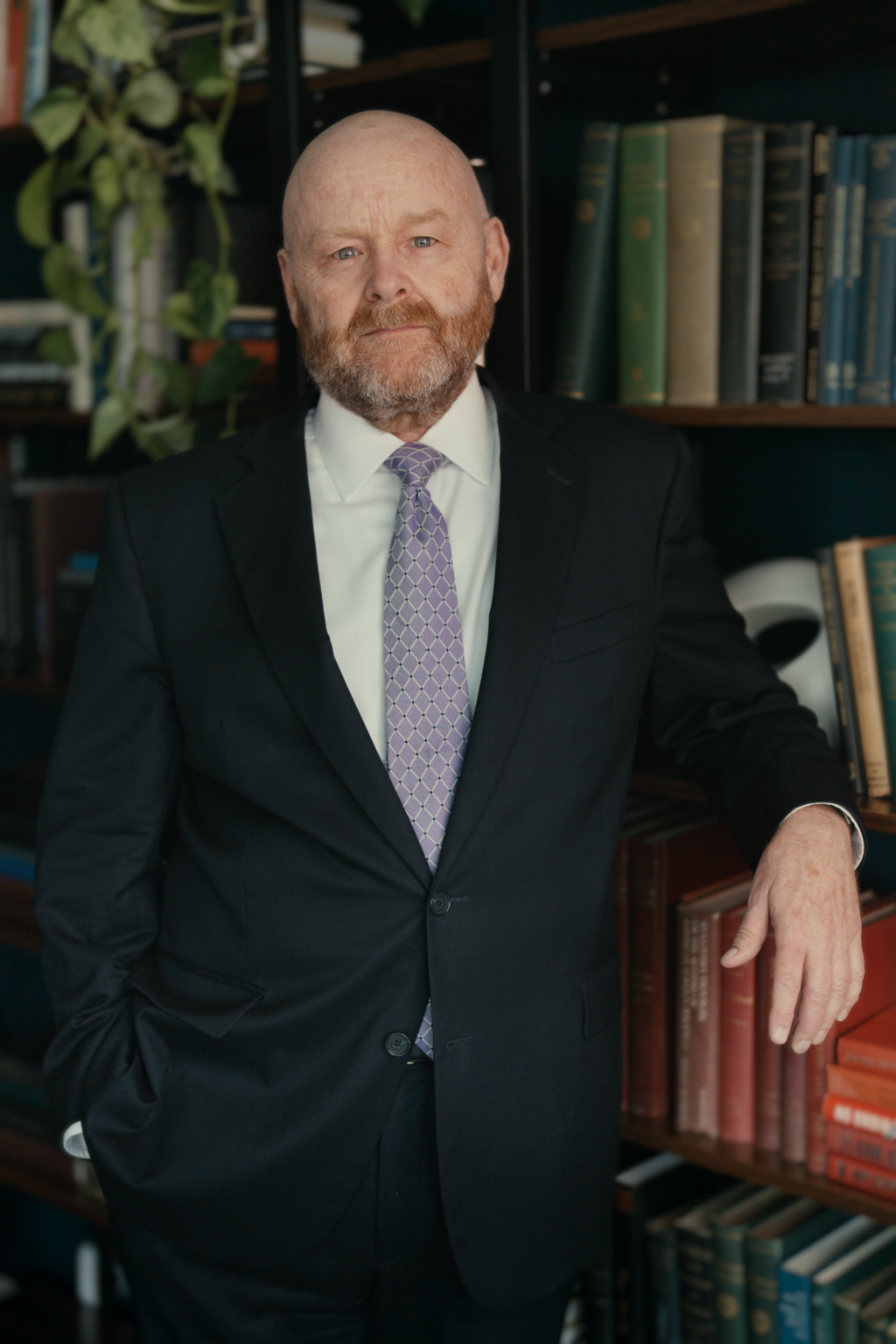TWE Remembers: John F. Kennedy’s “Ich bin ein Berliner” Speech

By experts and staff
- Published
Experts
![]() By James M. LindsayMary and David Boies Distinguished Senior Fellow in U.S. Foreign Policy
By James M. LindsayMary and David Boies Distinguished Senior Fellow in U.S. Foreign Policy
Being president is a tough job. Your every mistake is relentlessly dissected and replayed. Even when you get it right, people sometimes insist you got it wrong. Just ask John F. Kennedy. On June 26, 1963, he gave a rousing speech to several hundred thousand cheering West Berliners. Yet that speech is misremembered by many people a half century later for a mistake he did not make.
JFK’s visit to Berlin had immense symbolism. The city was the focal point of Cold War rivalry. In 1948, Stalin barred Western powers from accessing Berlin, which was deep in what was then the Soviet sector of Germany, by highway and railroad. President Harry Truman responded with the Berlin Airlift. For thirteen months, U.S. airplanes landed at Tempelhopf Airport virtually around the clock, bringing West Berliners food and fuel and sustaining their lifeline to the West. Over the dozen years after the Berlin Blockade, East Germans increasingly fled to West Berlin. On the night of August 13, 1961, the Soviets and their East German client state had enough: they began construction of the Berlin Wall. Not willing to risk starting a war in Europe, Kennedy could only complain as first barbed wire and cinderblocks, and then concrete walls and guard towers, went up around the city.
So when JFK arrived in West Berlin in the summer of 1963, a huge crowd awaited him. By some counts, six out of every ten residents turned out to see the young president—and leader of the Free World—speak. What they heard was not especially new to anyone who had read the speeches he had given since taking the oath of office.
But the impact of a speech often depends more on its context than its novelty. And seldom has any speaker better understood his context than JFK did that day in Rudolph Wilde Platz. Just three paragraphs into his remarks he delivered the line that bonded him to his audience and made clear that the United States would stand by West Berlin:
Two thousand years ago the proudest boast was “civis Romanus sum.” Today, in the world of freedom, the proudest boast is “I am a Berliner.”
These famous words do not appear on the final typed notecards prepared for Kennedy. But the phrase was not improvised. Robert Lochner, Kennedy’s translator and a fluent German speaker, practiced the phrase with him in the office of West Berlin’s mayor, Willy Brandt, until right before the speech.
What the cheering crowds did not realize that day was that JFK’s speech would generate a powerful urban legend: that in declaring his solidarity with West Berliners, Kennedy had actually called himself a jelly doughnut. The legend has persisted despite being debunked time and again, perhaps because so many news sources, including the august New York Times, have repeated the mistake over and over.
Yes, a “Berliner,” or more precisely a “Berliner Pfannkuchen,” is a jelly donut. But context matters. Just as no American would think someone who says “I am a Bostonian” is saying “I am a shoe,” or that someone who says “I am a New Yorker” is saying “I am a car” or “I am a magazine,” Berliners knew exactly what JFK was saying that day in Rudolph Wilde Platz. “Ich bin ein Berliner” is the great gaffe that never was.
